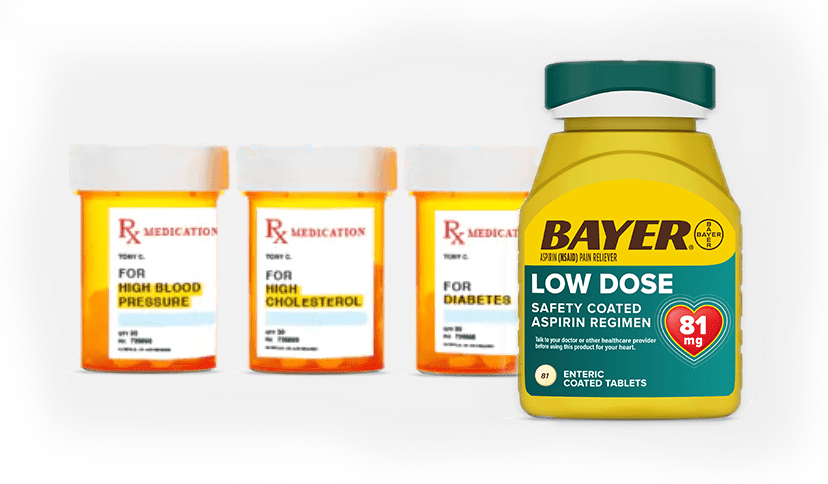WHAT IS A STROKE?
WARNING SIGNS OF A STROKE
Key Takeaways
THINK F.A.S.T.
To remember the signs of a stroke, remember the acronym, F.A.S.T.
ACT FAST
When someone is having a stroke, seconds count. Your quick thinking could mean a better recovery – or even helping to save a life.
BETTER SAFE THAN SORRY
Whether or not you’re sure that you or someone else is having a stroke, seek medical help immediately.
Do you know the warning signs of a stroke? When seconds count, do you know what to do?
Think F.A.S.T.
Watching someone you love having a stroke – or having one yourself can – can be a frightening experience. With 795,000 Americans having a stroke every year, knowing how to recognize the signs – and more importantly what to do – is powerful knowledge.
Fortunately, there’s an easy way to remember the signs: F.A.S.T.
Each letter is a clue.
F is for Face Drooping
If one side of the person’s face is drooping or is numb, it could be a sign of a stroke. If you can’t tell, try asking the person to smile. If their smile is uneven or lopsided, it could be a stroke warning sign.
A is for Arm Weakness
If someone is having a stroke, they’ll often not be able to raise both arms completely. One arm may be numb or weak, and if they try to hold both arms up, one arm may start to drift down immediately.
S is for Speech Difficulty
If you or someone else is having difficulty speaking, has slurred speech or is just hard to understand, it’s another possible sign of stroke. Some stroke victims have trouble speaking at all, while others speak in gibberish or in a way that’s almost like their tongue can’t move. If you’re unsure, try asking the person to repeat their name or other simple words such as, “Apples are red.”
T is for Time to Call 9-1-1
If you see someone experiencing even one of these 3 symptoms – even if the symptoms go away – don’t wait. Get on the nearest phone, dial 9-1-1 and let the dispatcher know “I think someone’s having a stroke.”
Seconds count when it comes to stroke, so getting help immediately is critical. It’s also good to note the time you first noticed the symptoms, even if it’s an estimate. First responders will want to know so they can take appropriate action.
Look for These Other Signs, Too
In addition to the F.A.S.T. signs, sometimes stroke victims experience other signs – either on their own or even in combination with the other signs of stroke. These other signs are sudden and may include:
- confusion, trouble speaking or understanding what you’re saying
- numbness or weakness in their face, arm or leg, especially on one side of their body
- blindness or blurry vision in one or both eyes
- difficulty getting around, dizziness, loss of balance, or coordination
- severe, unexplained headache
If you see someone experiencing these symptoms, don’t wait. Get on the nearest phone, dial 9-1-1 and let the dispatcher know “I think someone’s having a stroke.”
Better Safe Than Sorry
Even if you’re not sure if you’re witnessing a stroke, take action and seek immediate medical assistance. Medical professionals often say they’d rather have you come in and find out it wasn’t a stroke – because they know there are many thousands of stroke victims who don’t take action and die.
NBA ALL-STAR PAUL GEORGE TALKS ABOUT THE IMPORTANCE OF F.A.S.T.

MANAGING RISK:
WHY PRESCRIPTION MEDICATIONS
MAY NOT BE ENOUGH
If you take prescription medications for high blood pressure, high cholesterol, and diabetes, they may not be enough to protect your heart. Talk to your doctor about whether these medications are enough for you and whether adding an aspirin regimen can help further reduce the risk of another heart attack or clot-related (ischemic) stroke.
Aspirin is not appropriate for everyone, so be sure to talk to your doctor before you begin an aspirin regimen.
Aspirin regimen products for recurrent stroke prevention
Aspirin is not appropriate for everyone, so be sure to talk to your doctor before you begin an aspirin regimen.








